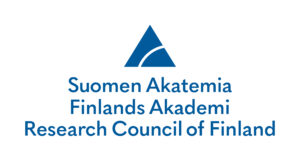Time
1.1.2022–31.12.2024
Project coordinator
Åbo Akademi
Funded by
The objective of the project is to greatly increase the understanding of temperature gradient related fundamental phenomena that govern high-temperature corrosion in biomass and waste-fired heat and power boilers. New research approaches will be utilized to conduct laboratory-scale corrosion testing and computational modeling with high-detail chemistry. The results will provide a better understanding of the role that temperature gradients play in high-temperature corrosion mechanisms. The resulting data will provide heat exchanger material and boiler manufacturers, and boiler operators knowledge that can be utilized to manage corrosion in high temperatures and to better manage the optimization and availability of boilers.
Heat and power boilers utilizing low-grade fuels (e.g., biomass and waste) often experience high amounts of fouling and slagging of the heat exchanger surfaces. Ash deposits that form within the boilers can contain high amounts of alkali and heavy metal salts, which can induce fast corrosion kinetics and be detrimental to the heat exchanger material. The effects of temperature gradients on ash deposit chemistry and high-temperature corrosion have been studied before, but so far, the results have been indicative and no comprehensive comparable corrosion results between isothermal conditions and temperature gradient conditions are available. The detailed effects of the temperature gradients on high-temperature corrosion are still elusive.
The objective of the proposed research is to provide a detailed understanding of the effects that temperature gradients have on high-temperature corrosion and ash deposit chemistry. In the present proposal, the idea is to systematically study high-temperature corrosion in isothermal and temperature gradient conditions, and to couple different mathematical modeling principles for a better understanding of the ash deposit-corrosion product-steel system. The laboratory experiments and the modeling will result in a quantitative understanding of the effects of temperature gradients on high-temperature corrosion in boilers and a qualitative understanding of the underlying fundamental chemical and physical phenomena for high-temperature corrosion and ash deposit aging.
The detailed objectives of the proposed research are to 1) identify the detailed deposition routes of various species of the K-Pb-Cl-SO4 system, 2) study and quantify the effects of temperature gradients on high-temperature corrosion of heat exchanger materials through comparison tests with isothermal and temperature gradient exposure, 3) study and qualitatively identify temperature gradient driven mechanisms within an ash deposit-corrosion product interface with solid and liquid phases present, and 4) develop a mathematical model utilizing thermodynamics and computational fluid dynamics capable of predicting temperature gradient induced liquid-phase migration within mainly solid ash deposits and corrosion layers.
The research will result in knowledge that can be utilized by heat exchanger material and boiler manufacturers, and boiler operators to manage corrosion in high-temperatures and to better optimize the production parameters and availability of boilers.

Contact us
Jonne Niemi
Postdoctoral Researcher
Laboratory of Molecular Science and Engineering
